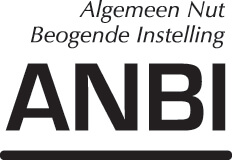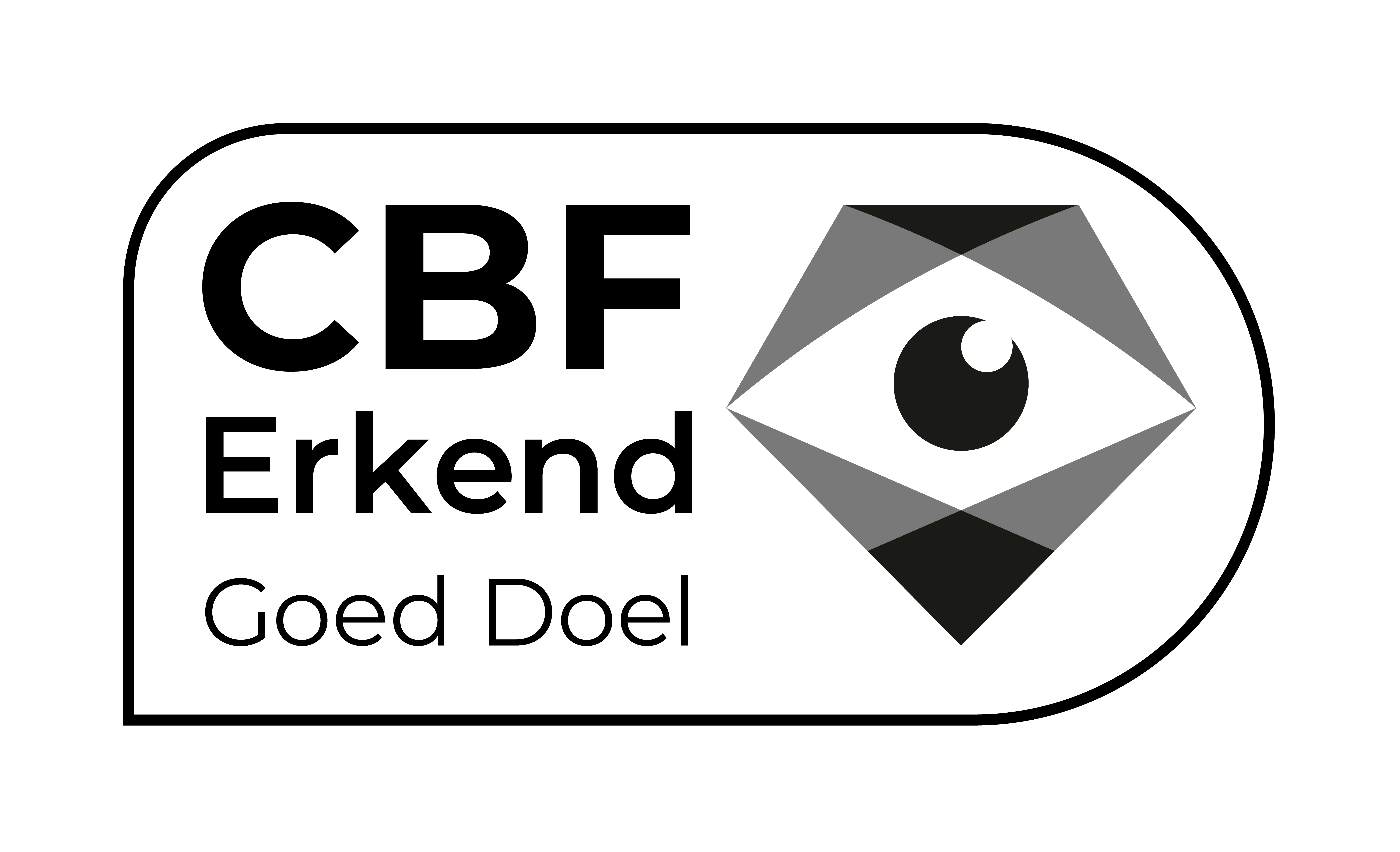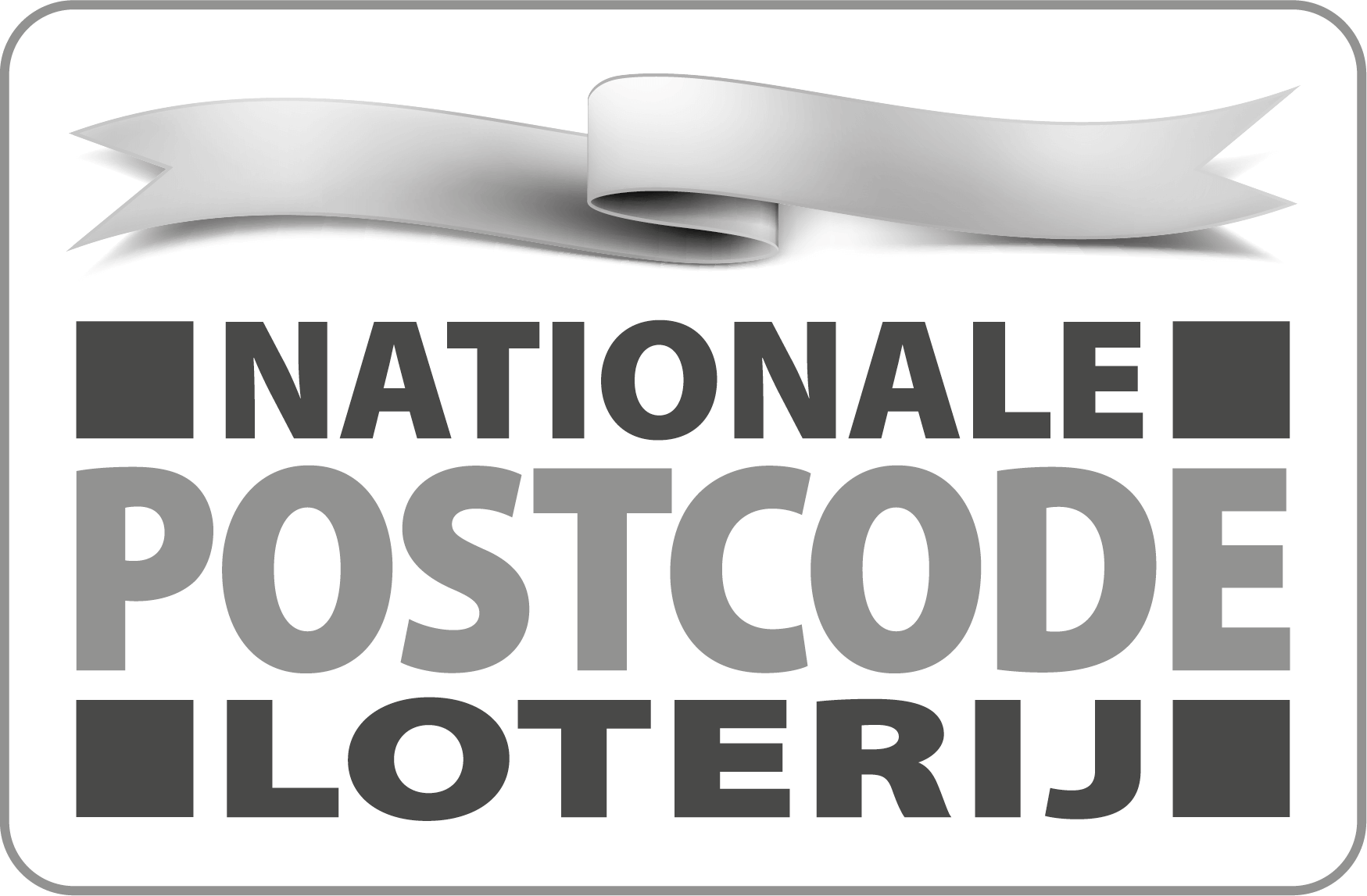News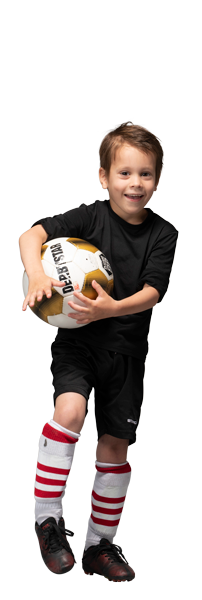
Iris Honcoop is a youth nurse at the Municipal Health Service (GGD) in Breda and works with newcomer children: young people and families from abroad who have just registered with the municipality. She sees firsthand how important it is for children to quickly settle in, even outside of school. Sports, swimming lessons, and other activities help with this, and she works with the Breda Youth Fund for Sports & Culture.
Arriving in a new country
I also work at schools through the Municipal Health Service (GGD), make home visits, and maintain close contact with the International Transition Class (ISK). During the initial period a family or child is here, I try to offer a warm welcome and assess their needs. Families are often still preoccupied with housing, belongings, and finances. Refugee services are usually already working on these matters. I focus primarily on the children's development. Physically, there's usually nothing wrong, but I see a lot going on mentally. Children have sometimes experienced war, lost their families, and are living in survival mode. Their bodies are here, but their minds and hearts are elsewhere.
Youth Fund as a permanent component
I came into contact with the Youth Fund right from my induction period. For families in poverty, which is almost always the case with newcomers, it's simply part of the deal that we offer this. And it's also incredibly beneficial for their integration: participating helps them learn the language faster, develop talents, and make friends. And that benefits society as a whole. Swimming lessons are very important, especially with all that water here. For adolescent girls, this sometimes requires extra attention due to religious beliefs. We need to find solutions for that together.
It's also incredibly beneficial for their integration: participating helps them learn the language faster, develop talent, and make friends. And that benefits society as a whole.
Sport as a stepping stone and outlet
I see that sports help enormously. Physical exertion is mental relaxation—I explain that to young people. Sports can be especially helpful for children who are harboring anger, for example, because of what they've experienced. Something like boxing is a perfect outlet. And in such sports venues, all sorts of cultures come together, which is good for connecting. I had a boy who went to the gym; it wasn't close by, but he faithfully cycled, which was even better for his health. And a Syrian girl who started playing tennis. That sport isn't often requested, but with the help of the Youth Fund, we were able to easily arrange it. She also received the equipment in a gift certificate.
Small steps, big impact
I always mention the Youth Fund in all my conversations. I usually have families who speak the language request a trial lesson themselves. That increases their involvement. With others, I do it together. And if someone is hesitant, I ask them to think about it. If they still want to participate later, I know their motivation is genuine. These are small steps that ensure children participate, develop, and feel at home. That gives me real satisfaction.
Spread and pass on
I also see it as my duty to tell colleagues and network partners at schools about the Youth Fund. I share success stories. Life is expensive, and barriers can be high. But precisely then, it's so valuable that something like the Youth Fund exists, so we can help families and give children more opportunities. Especially with newcomers, I find it especially special that we can contribute something positive to their start in the Netherlands in this way.
Facts about Iris
How old are you? 36 years
What is your favorite sport? I used to play basketball a lot. And I still enjoy going to the courts.
What is favorite song? I love R&B Classics, nineties.
What are you proud of in relation to your role as Meerkracht? I am proud that I can be easily accessible to newcomers who have to rebuild their entire lives here.
What do you do if you win 1 million? Installing a really good surround sound system in my house! And taking a world trip with my children: taking them home for a year of school and then teaching them myself.
What do you wish for children in Breda? I want all children to feel safe, secure and at home, that is really the most important thing.
Ali Lammou is a youth worker for Surplus in Breda South-East. From the community center in Brabantpark, he has been mentoring young people in their development for years. Since the Youth Fund's inception, he has also been a "Meerkracht" (More Power) and helps dozens of children participate in sports or cultural activities every year. "The Youth Fund is exactly what we need in our work: hassle-free support that immediately makes something possible for a child."
Trust as a starting point
The most important thing in this work is the bond of trust. Young people see me as a permanent fixture in their neighborhood. They know: I can go to Ali for help. And so do the parents. I've known some of them since their child was in sixth grade. They come with their siblings, hang out at the panna court, or simply drop in. The accessibility and openness here are invaluable, because it allows us to identify issues early on. Sometimes I literally ring people's doorbells to chat and explore how we can help. That personal relationship also gives people the confidence to talk about financial worries. And then we can have the conversation: what does your child need, and how can we accommodate it?
In co-production with young people
We truly collaborate with young people. They express their interests and needs. Especially around the so-called "Grote Sprong" (Great Leap), the transition to secondary school, we see that young people are spending less time outdoors and less time exercising. Our job is to keep them moving and motivated. We consider the possibilities. Do they want to play soccer, dance, or box? Sometimes, new activities arise from this, such as a clinic or a neighborhood tournament, which can then lead to a regular class. We've created accessible spaces in the neighborhood: a panna court, a water station so they don't have to go home, a 3x3 basketball court, even a digital dance floor in the park. Young people contribute ideas, help organize, and we provide support. That ownership is what makes it so powerful.
Go to the sports club
In my neighborhood, many children would never join a club or association without the Youth Fund. The fees for membership and supplies are often simply too high. Especially for families already facing significant financial challenges, such an application makes a real difference. The Youth Fund is a huge help for parents in these situations. They don't have to pay anything upfront, it's quickly arranged, and I help out where needed. I usually handle the application; sometimes one of us accompanies them to the store to buy supplies. By making it as easy as possible, it significantly reduces the burden on families, allowing them to fully participate.
By making it as easy as possible, it takes a huge amount of worry off the family and allows them to fully participate.
Persevere and grow
My role certainly doesn't stop with the registration. I stay involved. For example, if a child starts kickboxing, I'll visit the lessons. After a while, we'll talk: is this still a good fit, or would you like to try something different next year? This way, children discover different sides of themselves. They truly blossom, with more self-confidence. And sometimes you even see truly special talents. There are quite a few boys from the neighborhood who have progressed through a club to professional football. They're great role models for the kids here. It shows what's possible when you start something and persevere.
Broader than sport
For me, sports aren't a goal in themselves, but a means to an end. I had a girl here who had just moved to the Netherlands and consciously chose hockey, which was surprising. She was eager to meet new peers, even outside her own neighborhood. Through her team, she connected with peers from different backgrounds, exactly what she was looking for. And that's what sports do: they connect, they open up worlds, they make you feel part of something bigger, even outside your own bubble. For young people, that means so much: socially, physically, and mentally. Sports, dancing, and movement are essential for their health, self-confidence, and happiness.
Facts about Ali
How old are you? 45 years
What is your favorite sport? I am a big football fan and I enjoy playing table tennis, also with the young people here in the community centre.
What is favorite song? Ooh, tricky, “We Are The Champions”?
What are you proud of in relation to your role as Meerkracht? I'm proud of the appreciation you receive. Sometimes it only comes later, when the children are a bit older. Then they come back to me and have so many memories of the time they spent here and the activities they did with us.
What do you do if you win 1 million? I'm putting that into my foundation for poverty reduction in Morocco. The aid we provide there is very broad, ranging from groceries to housing. And now we're trying to install an artificial turf field.
What do you wish for children in Breda? I want children to grow up carefree, to have security, including financial security, and to grow up without worries.
Cees Zwager is the driving force behind De Buurtsalon in Doornbos-Linie. As a "Meerkracht" (More Power), he helps dozens of children every year find their way to sports and creative activities.
A few boys from the asylum center in our neighborhood were participating in a local soccer tournament, and I went to watch. The club president immediately offered them one of their open fields for a regular weekly sports session. Before long, thirty or forty players from all over the world were there every week, and they could participate in the competition. Memberships and soccer equipment were required. That's how I came across the Youth Fund years ago.
Piano at meeting place
The speaker is a proud Cees Zwager, who, as Meerkracht (More Power), receives dozens of requests every year for children from his neighborhood to come to the Neighborhood Salon on Edisonplein. "Another good example is that we have a meeting place outside here where there's lots to do, and we had a piano there. One girl started practicing there. Now, with the help of the Youth Fund, she's taking piano lessons. Another child can take violin lessons, having fun with a classmate. Sometimes they even come here to perform at the Neighborhood Salon after their lesson."
Look in the eyes
For years now, I've seen how much it means to children to be able to participate in sports and arts classes. Whether it's dancing, kickboxing, or singing lessons. They do something they choose and that makes their hearts beat faster. And they make all sorts of new connections, visit different places in the city, and receive the supplies they need. Some of them aren't used to that, especially if they come from places where it was unsafe for a while. The look on their faces when they receive a voucher for soccer shoes, or when they've been to a lesson for the first time and tell me about it: that's priceless. I want all children to have this opportunity.
They do something of their own choosing and that makes their hearts beat faster. And they make all sorts of new contacts, visit different places in the city, and receive the things they need.
Together to NAC
"The free NAC tickets we're allowed to give out thanks to the Jeugdfonds are also fantastic. I get spontaneous messages from happy parents and children from the stadium. Participating clearly makes a difference: one of the local boys even ended up playing professional football for a while. Parents and children can access these kinds of opportunities through us at the Jeugdfonds. I say: great job, and keep it up!" says Cees.
Tips for other Meerkrachten?
"Know your Pappenheimers: your inner compass is usually right, and if you pay close attention, you'll know exactly who you can help and how to support your application. Together, we make it possible for every child to participate."
Facts about Cees:
How old are you? 59 years old
What is your favorite sport? Baseball
What's your favorite song? Redemption Song by Bob Marley
What are you most proud of in relation to sports, culture or work for the Youth Fund? The happy faces of the children when an application was approved.
What would you do if you won a million in the lottery? That's never going to happen because I don't play with anything!
What do you want for children in Breda? A bright future in a safe environment.
Inge Hopmans is a bridging officer at INOS, a primary education foundation with 28 schools in Breda, and has years of experience in youth care. In her role, she bridges the gap between education and healthcare. This allows more children to receive the support they need to fully participate – both in school and beyond.
See what the child needs
Since 2024, I've been working as a bridge officer at INOS, a relatively new position in Breda. Bridge officers have been active elsewhere in the country for longer, and the results show that preventive support really works. We connect schools with care providers and work together to identify the needs of children and families. In neighborhoods where poverty is prevalent, or where language and cultural differences make it difficult to find support, we ensure that parents and caregivers know the right path. The Youth Fund for Sports and Culture is a logical partner in this regard – because sports and culture offer children so much more than just an activity. That's why, in my role, I'm also a Meerkracht (More Power) member.
Small effort, big difference
I see firsthand the enormous impact a child has when they have the opportunity to play sports, make music, or do crafts. A girl in the seventh grade really wanted to do gymnastics, but there wasn't enough money at home. Thanks to the Youth Fund, she not only received tuition reimbursement but also a voucher for sportswear. Her mother later told me how proud she was that her daughter now trains weekly and competes in competitions where the whole family comes to watch. Or a little boy who could start boxing and get those gloves—that gives him confidence! And then the joy of a child who could finally take swimming lessons after we arranged it together. That's what I do it for.
The joy of a child finally being able to take swimming lessons after we arranged it together. That's what I do it for.
Power of collaboration
The great thing about this job is that I can adapt quickly. Teachers know where to find me, and after parent-teacher meetings, I often have requests for help. I then see if there's anything the Youth Fund can help with. And if someone wants to apply themselves but gets stuck, I sit down with them and we figure it out together. A hobby can mean so much: it provides structure, social contact, and a place where a child can just be a child and participate just like everyone else. It's really great that something like the Youth Fund exists.
Make it easier
Sometimes parents or caregivers don't fully understand the possibilities or what they're entitled to. The barrier to asking for help is high, especially when language and cultural barriers arise. That's why I want to make it as easy as possible for everyone to ask questions and tell me what their child needs. I hope that more and more people will find their way to the Youth Fund.
Everyone in the boat
It's proven: children develop better when their families are involved in school, sports, and culture. That's another reason I want to help teachers with what's going on in a child's life outside of school. If we connect the dots together and provide a little support to those who need it, we can ensure that no child falls behind.
Facts about Inge
How old are you? 44 years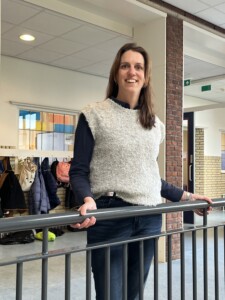
What is your favorite sport? Handball
What's your favorite song? Rihanna's 'We Found Love' – that was played at my wedding
What are you proud of? That with relatively little effort we can make such big differences in a child's life
What would you do if you won a million? Throw a big party!
What do you want for children in Breda? That they feel they belong, that they are important and can always participate
Intermediaries are the foundation of our fund. They are professionals involved in the education, upbringing, or support of children, and they are the eyes and ears of our fund in the city districts. These heroes know the families, know where visible and hidden poverty exists, and connect families with our fund. Especially for our anniversary year, we're interviewing our fund's very first hero: Ton Picokrie.

I've always worked as an internal counselor at schools where many young people from vulnerable families gather. These include low educational levels, financial difficulties, cramped housing, and so on. I supervised an average group of 20 to 25 young people and their parents/guardians. I also regularly submitted applications to the Youth Fund for them.
After an application to the Youth Fund was approved, I always contacted the coach. I asked them to call me if the young person missed a few club appearances or if there were any other unusual circumstances, because usually, something is wrong. I believe personal contact is important, and it can be very valuable. For example, a coach once called me to say he'd seen signs of abuse while changing.
Many beautiful success stories
Like Robert (15 years old), who, due to circumstances, was temporarily living with his aunt. He didn't have a city pass, but there really wasn't any money. After I explained it to the Youth Fund, he was allowed to play football. After a few weeks, his mentor came to me and asked: 'What happened to Robert? He seems like a different boy.' That's how much of an impact the sport had on him. Then, against all odds, he got his diploma at school.
Or Sabrina, who was bullied in class because her classmates thought she smelled bad. It turned out the family didn't have the money for a daily shower or to buy personal care products. She joined a sports club and was able to shower there, and the bullying gradually stopped.
I recently received a message from Turkey, from Enver, whom I mentored for a while 15 years ago. He wanted to thank me for what I was able to do for him, with the help of the Youth Fund.
Changes in family problems
"The problems are getting bigger and more complex. You're now dealing with many more multiple issues within families: relationships, debt, institutional and psychological problems, and also war-related issues," he says.
In recent years, I've primarily been supporting Ukrainian refugees. One of them, Aleksandr, was on a train with his mother, on their way to a holiday in the Carpathian Mountains, when bombs fell all around them. The father called them to tell them the Russians had invaded and that they had to flee to Poland. Aleksandr never saw his home, animals, or friends again and now lives here with his mother in a shelter for Ukrainians in Amsterdam. Unbelievable, isn't it?
Sports and culture mean much more than just leisure activities
Playing sports makes children more confident and feel better about themselves. There's often a noticeable positive change in their home life as well. Children can safely go to a club and aren't stuck at home, crammed together, bored. The positive approach, a compliment from a coach or teammates, makes them feel more secure. They can clear their head and get a good feeling. I often hear from their mentor or psychologist that their well-being has improved after joining a (sports) club.
Ton's wishes for the future of the Youth Fund
I hope that many companies and individuals will continue to support the Youth Fund. Sports and culture are so important to the young people I've worked with. It's not a given in their families, and parents often can't take the lead, due to various circumstances, in getting them involved in sports or cultural activities.
I hope the intermediaries actively approach the children and don't just sit there waiting for the children to come to them, because then nothing happens.
Are you a More Powerful Supporter for the Gelderland Youth Fund for Sports & Culture? We'd love to invite you to our webinar on Tuesday, May 20, 2025 by 3:30 PM to 4:30 PMHave you recently become a Meerkracht member? Would you like to receive a refresher on the application system? Or would you like to meet other Meerkrachten members? Then register via the link below.
We would like to discuss the following topics with you during the online meeting:
- The working method of the Gelderland Youth Fund for Sports & Culture;
- The application system;
- Opportunity to discuss the rules of your municipality;
- Discussing the Multiforces toolkit;
- Tips and Tools;
- Answering your questions.
Are you unable to attend, but do you have questions about your role as a More Power? Please contact us via: miranda.gelderland@jeugdfondssportencultuur.nl
Via the Youth Fund to the Zeeland Youth Academy and then moving on to the Eredivisie – it could very well be
Mark Vermue, a senior citizen from Vlissingen, submits an average of 36 applications for support to the Youth Fund each year. He is employed by Neighborhood teams Vlissingen and is also a Cruyff Foundation Coach for the Cruyff FoundationGetting people moving and giving them a fun day is second nature to him.
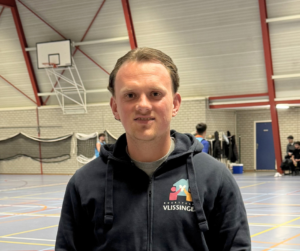
Vermue does his work with pride, passion, and enjoyment. "Last Tuesday, we set up several bouncy castles in the sports hall and offered free sports lessons. In four hours, we welcomed over 150 children and their parents. You could just see how happy and grateful everyone was – I think that's fantastic." He completed the CIOS (Central Organization for Social Work) and will soon be starting a post-bachelor's program to become a lifestyle coach. He is involved in organizing various sporting events in the municipality of Vlissingen. Since 2023, he has also been a Meerkracht and Cruyff Foundation Coach.
Sports prevents isolation
For Vermue, sport, besides health, offers a bit of social connection. He plays soccer, works out, and paddleboards. "Through sport, you develop your talents and meet new people. You get out of the house for a bit, away from that familiar couch or desk. What sport brings me, it can bring to others too. It gives me so much energy to get children and the elderly moving and to give them a fun day."
Not on summer vacation
“Many children I meet through the activities of Neighborhood Teams Vlissingen and the Cruyff Foundation cannot go on summer vacation due to financial worries at home. They are so incredibly happy that they can participate in our activities (neighborhood days) or those of the Cruyff Foundation (Culture@Cruyff Courts) can play sports or games." Vermue also wants these children to play sports and games outside of organized events. That's why he decided to sign up as a "Meerkracht" (Power of the Youth Fund for Sports & Culture).
Youth Fund is a 'surprise'
"When I tell parents that their children can also participate in sports regularly, they're often surprised: is there a party that pays the membership fees? Really? It's a small effort for me to apply for support from the Youth Fund, and their gratitude is immense." Sometimes there's a language barrier, says Vermue, and then the application takes a bit more effort, but generally it's quite simple. He recommends all Cruyff Foundation Coaches to also become a Meerkracht (More Power). "You help children to keep moving regularly and become part of a team or club!"
With an average of 36 applications per year, Vermue is one of the most active Multiple forces that the Youth Fund has (13,427 in total). And of all the Cruyff Foundation Coaches who are also Meerkracht members, he is the most active.
Zeeland talent
Thanks to registrations with the Youth Fund, Vermue sees opportunities growing for children and young people in Zeeland. “I immediately see the impact of structured participation. For example, a girl I registered is now taking singing lessons. Her teacher says she's incredibly talented. Imagine seeing her on TV in a few years! And in the Zeeland Youth Football Academy (JVOZ), there are many boys who were given the opportunity to play for a club through the Youth Fund – who knows, maybe they'll one day become big names in Dutch football; wouldn't that be great?”
>> Instagram Neighborhood Teams Vlissingen
>> More about the Cruyff Foundation

Recognizing financial worries in families isn't always easy. And even discussing it with parents or caregivers can be quite daunting. That's why we now have the Conversation card: from signaling to requests Developed for (and by) Meerkrachten. This practical tool provides Meerkrachten with tools to discuss financial concerns and provide targeted support to families.
You can view the Conversation Card and other tools to help find children and talk to parents about support from the fund here:
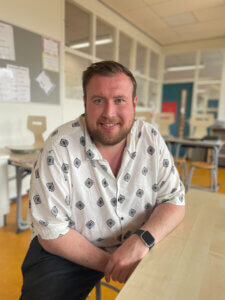
Teacher Kevin (30) started teaching upper-grade classes immediately after completing his teacher training at the teacher training college. He has always taught grades 7 and 8 because he enjoys interacting with these students. Kevin: "They have so many wonderful stories. I can also incorporate many of my own interests into the lessons, such as history and geography."
His greatest motivation is to get the most out of his eighth-grade class: achieving more learning goals and fostering growth, not only academically but also personally. To achieve this, he focuses on various projects where students delve deeper into a specific theme. The latest project was "ancestors unknown”, what It was about your roots: where do you come from? Sometimes from far away, sometimes from close by. Because of the students' diverse backgrounds, these are enjoyable lessons, Kevin explains enthusiastically: Moroccan, Colombian, Mexican, Asian, Nigerian, Turkish, Italian, and Dutch. "By involving the parents as well, it becomes very meaningful."
'Do the Amsterdam Games have an impact on children?'
"Oh, absolutely! The school has been participating for several years with groups 6, 7, and 8. The photos on the parent portal got the teachers of groups 3 and 4 so excited that they're now participating too," says Kevin.
The students are really looking forward to it, and it's not hard to get extra parents to join them as chaperones, he explains. "What the kids mostly talk about are the tricks with the BMX and scooters. That's really impressive and makes them want to try such a sport. They especially love sports they're unfamiliar with or have never had the chance to do before," says Kevin.
He doesn't know whether this will lead to more applications to the Youth Fund, but next school year there will be a dedicated sports teacher for all groups, and they will actively encourage parents to participate in a sports club.
How did you hear about the Youth Fund?
As a teacher, you hear a lot of stories from the children in the schoolyard. One little boy bragged about his achievements at the soccer club, while Kevin knew he wasn't a member. "I talked to him, and it turned out the funding for membership was the problem. Together with a member of the Parent and Child Team and the intermediary, with the parents' approval, we submitted the application." For Kevin, it was his first encounter with the Youth Sports & Culture Fund. "The boy has been playing soccer at the same club as his friends for three years now and tells the most fantastic soccer stories!"
More applications to the Youth Fund in 2025!
At the school, Petra de Bruin, caretaker and jack-of-all-trades, acts as the go-between. She forms a close team with Samantha Caupain, administrative assistant. They know the children and their parents intimately. The school offers many after-school sports and cultural activities, and there's a direct link to the Youth Fund. In the coming school year, they and the sports teacher will be working extra hard to enroll even more students!
All children should be able to participate – say Petra and Samantha
Daniëlle Zuidema-Maes has been an intermediary for the Limburg Youth Fund for Sports and Culture for six years. In her role as a youth nurse at the Municipal Health Service (GGD) South Limburg, she sees children. During consultations with parents and children, she addresses various aspects. She looks not only at the children's health and physical development, but also at their social and mental well-being. If necessary, the family situation is also discussed. Daniëlle gains valuable information from this information about any problems or support needs that may arise.

During my consultations, I noticed that many children weren't taking swimming lessons because their parents couldn't afford them. I also regularly saw overweight/obese children who participated in little to no sports. The reason was often a lack of money or time. That's when I decided to sign up as an intermediary for the Youth Fund. I'm now the contact person for the Youth Health Service (GGD) in Parkstad, handling applications for sports and cultural activities.
Physical and mental health
It's important that children grow up with the opportunity to participate in sports and culture. Daniëlle agrees. "Every child should have the opportunity to obtain a swimming certificate. Swimming lessons are important, especially for safety."
Sports contribute to a healthy lifestyle. It's very healthy, both physically and mentally, to get enough exercise, meet other children, and participate in a social network. This also applies, of course, to participating in cultural activities such as music, painting, or dance lessons, scouting, and so on.
As an intermediary you make a difference
When asked if Daniëlle sees a difference in the children she's registered as an intermediary for support from the Limburg Youth Sports & Culture Fund, she agrees. "Generally, both parents and children are very grateful. I appreciate that as an intermediary. Children achieve a healthier weight, can grow up more safely, and are happier. Especially these days, I think it's important that they go to sports or cultural clubs and get away from 'the screen,' because a lot of screen time also has many downsides."
Facts & numbers
children and young people became members of a club through us in 2024.
in 2024, children and young people became members of a sports club through us.
in 2024, children and young people became members of a cultural club through us.
issued sports and cultural equipment in 2024.
